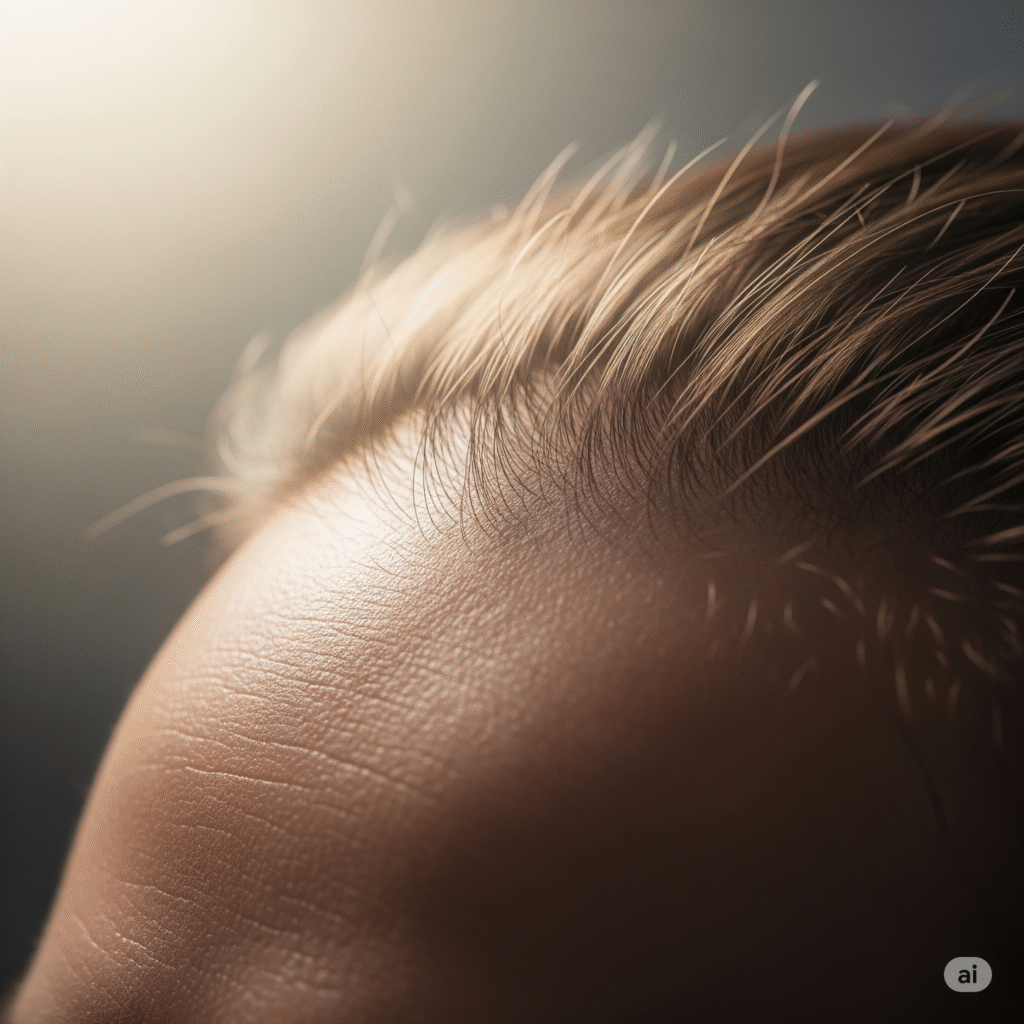Physical Address
304 North Cardinal St.
Dorchester Center, MA 02124
Physical Address
304 North Cardinal St.
Dorchester Center, MA 02124

The journey with a new medication like Mounjaro (tirzepatide) can be filled with hope and positive changes, but it can also bring unexpected questions and concerns. One of the most common anxieties I hear from patients is about hair loss. If you’ve noticed more hair in your brush or shower drain since starting Mounjaro, you’re not alone, and it’s understandable to be worried.
As a clinical pharmacist specializing in metabolic health, I want to provide you with a clear, evidence-based understanding of the connection between Mounjaro and hair loss. We’ll explore why it happens, what you can do about it, and when to speak with your healthcare provider.
[IMAGE PROMPT: A friendly and approachable clinical pharmacist in a white coat, sitting at a desk with a laptop and a model of a DNA helix in the background. They are looking directly at the camera with a reassuring smile. The lighting is soft and professional.]
To understand why you might be experiencing hair loss on Mounjaro, it’s essential to know about a condition called telogen effluvium. Our hair goes through a natural cycle of growth (anagen phase), transition (catagen phase), and rest (telogen phase). At any given time, the vast majority of our hair is in the growth phase.
Telogen effluvium occurs when a significant stressor—physical or emotional—causes a larger than usual number of hairs to shift prematurely from the growth phase to the resting phase. A few months later, these resting hairs are shed, leading to noticeable thinning.
Common stressors that can trigger telogen effluvium include:
The significant calorie deficit and metabolic changes that lead to successful weight loss on Mounjaro are precisely the kind of physiological stress that can initiate telogen effluvium. So, while Mounjaro facilitates weight loss, it’s the weight loss itself, not the drug, that is the likely cause of your hair shedding.
This phenomenon is not unique to Mounjaro. Similar reports of hair loss are associated with other GLP-1 receptor agonists like Ozempic (semaglutide) and Wegovy. The underlying mechanism is the same: these medications are highly effective for weight loss, and rapid weight loss can lead to telogen effluvium. It’s a testament to their efficacy, but also a side effect to be aware of and manage.
The good news is that telogen effluvium is typically self-correcting. Once your weight stabilizes and your body adjusts, your hair growth cycle should return to normal. However, there’s a lot you can do to support your hair’s health and encourage regrowth during this time.
When you’re losing weight, it’s crucial to ensure your body is still getting the essential building blocks for healthy hair. Here are some key nutrients to focus on:


While your hair is in a more fragile state, it’s important to treat it with extra care.
The journey of weight loss can be stressful in itself. Since stress can contribute to telogen effluvium, incorporating stress-management techniques into your routine can be beneficial.
Is the hair loss from Mounjaro permanent?
In most cases, no. Hair loss associated with Mounjaro is typically telogen effluvium, which is a temporary and reversible condition. Hair regrowth usually begins once your weight stabilizes and your body is no longer in a state of significant calorie deficit.
How long does hair loss last after starting Mounjaro?
The shedding phase of telogen effluvium usually starts 2-3 months after the initial trigger (in this case, the start of rapid weight loss) and can last for a few months. Regrowth can take longer, as hair only grows about half an inch per month. Patience is key.
Should I stop taking Mounjaro if I experience hair loss?
You should never stop a prescribed medication without first consulting your healthcare provider. The benefits of Mounjaro for blood sugar control and weight loss often outweigh the temporary nature of hair shedding. Your doctor can help you weigh the pros and cons and ensure there isn’t another underlying cause for your hair loss.
Can I take supplements to prevent hair loss on Mounjaro?
It’s always best to get your nutrients from whole foods first. However, if you suspect you have a deficiency, talk to your doctor. They can perform blood tests to check your levels of iron, vitamin D, and other key nutrients and recommend appropriate supplements if needed. Do not start taking high-dose supplements without medical guidance.
[IMAGE PROMPT: A close-up shot of a person’s scalp with new, short “baby hairs” growing along the hairline, symbolizing hair regrowth and recovery. The lighting should be soft and optimistic.]
While some hair shedding is a known indirect effect of the weight loss from Mounjaro, it’s important to keep your healthcare team informed. You should consult your doctor or a dermatologist if:
A dermatologist can confirm the diagnosis of telogen effluvium and rule out other causes of hair loss, such as androgenetic alopecia (pattern baldness) or an autoimmune condition.
Embarking on a journey with Mounjaro is a significant step towards better health, and it’s important to approach it with a full understanding of what to expect. While hair loss can be a distressing side effect, remember that in this context, it is usually a sign that the medication is working to help you lose weight. By focusing on excellent nutrition, gentle hair care, and stress management, you can support your body and your hair through this transition.
Always maintain an open dialogue with your healthcare provider. They are your best resource for personalized advice and support as you navigate your path to a healthier you.